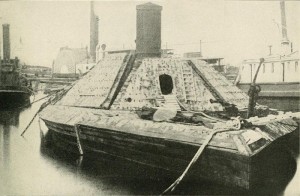Good morning.
Saturday in Whitewater brings a lovely October day, with a high of forty-four and sunny skies.
On this day in 1775, King George III spoke to the British Parliament about growing rebellion in the American colonies:
…King George III speaks before both houses of the British Parliament to discuss growing concern about the rebellion in America, which he viewed as a traitorous action against himself and Great Britain. He began his speech by reading a “Proclamation of Rebellion” and urged Parliament to move quickly to end the revolt and bring order to the colonies.
The king spoke of his belief that “many of these unhappy people may still retain their loyalty, and may be too wise not to see the fatal consequence of this usurpation, and wish to resist it, yet the torrent of violence has been strong enough to compel their acquiescence, till a sufficient force shall appear to support them.” With these words, the king gave Parliament his consent to dispatch troops to use against his own subjects, a notion that his colonists believed impossible.
Just as the Continental Congress expressed its desire to remain loyal to the British crown in the Olive Branch Petition, delivered to the monarch on September 1, so George III insisted he had “acted with the same temper; anxious to prevent, if it had been possible, the effusion of the blood of my subjects; and the calamities which are inseparable from a state of war; still hoping that my people in America would have discerned the traitorous views of their leaders, and have been convinced, that to be a subject of Great Britain, with all its consequences, is to be the freest member of any civil society in the known world.” King George went on to scoff at what he called the colonists’ “strongest protestations of loyalty to me,” believing them disingenuous, “whilst they were preparing for a general revolt.”
On this day in 1864, a Waukesha soldier made a particular contribution to the Union war effort:

1864 – Waukesha Soldier Sinks Confederate Ship
On this date William Cushing led an expedition to sink the Confederate ram, the Albermarle, which had imposed a blockade near Plymouth, North Carolina and had been sinking Union ships. Cushing’s plan was extremely dangerous and only he and one other soldier escaped drowning or capture. Cushing pulled very close to the Confederate ironclad and exploded a torpedo under it while under heavy fire. Cushing’s crew abandonded ship as it began to sink. The Albemarle also sunk. Cushing received a “letter of thanks” from Congress and was promoted to Lieutenant Commander. He died in 1874 due to ill health and is buried in the Naval Cemetery at Annapolis, Maryland. [Source: Badger Saints and Sinners by Fred L. Holmes, p.274-285]
Google’s daily puzzle offers a history question: “The daughter of Abraham Lincoln’s nominee for the post of minister to Spain invited her fiance to Lincoln’s second inauguration. Who was her fiance?
